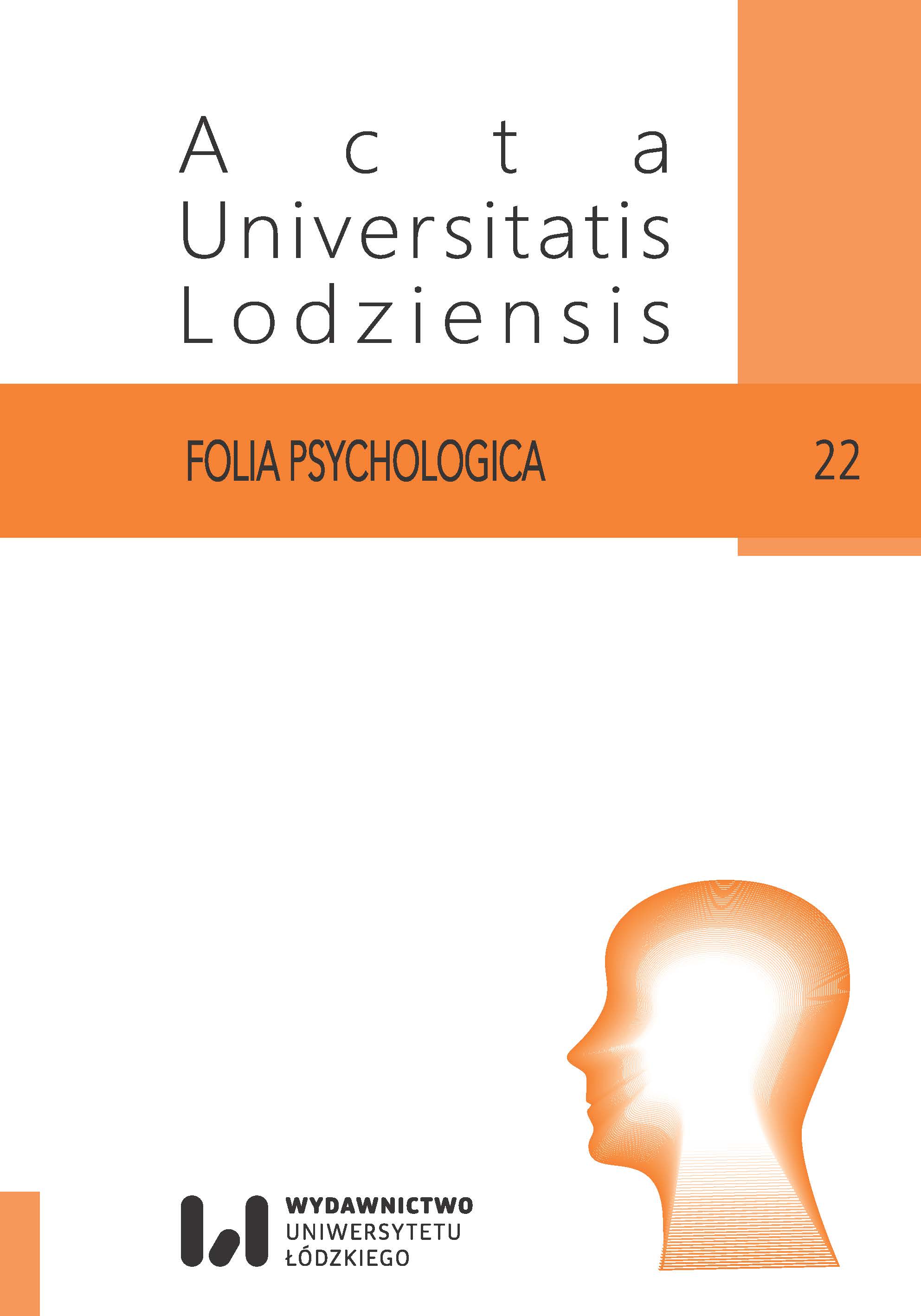Family values of Vietnamese living in Vietnam and Poland
DOI:
https://doi.org/10.18778/1427-969X.22.04Keywords:
family value, traditional value, Vietnamese, family relations, immigrantAbstract
This article focuses on the results of the study on family values of Vietnamese living in Vietnam and Poland. The participants were 196 Vietnamese (100 people in Vietnam, 96 people in Poland) and 15 people who got married with Poles. The methods used included questionnaire and intensive interview. The study used traditional family values of Vietnamese as the background for data analyses and comparison of two groups. The study results showed that Vietnamese participants continued to confirm basic traditional family values such as filial piety, respect for parents, especially in parents – offspring relations; faithfulness, benevolence and righteousness in husband – wife relations. Besides, some differences were revealed such as participants living in Poland having more freedom than other group in relationships with offspring, and are more flexibility in opinions and behavior about sex issues. These findings confirm that living and working overseas bring some changes to the system of accepted family values.
References
Arcia E., & Johnson A. (1998). When respect means to obey: Immigrant Mexican mothers’ values for their children. Journal of Child and Family Studies, 7(1), 79–95.
Google Scholar
Berry J. W., Phinney J. S., Sam D. L., & Vedder P. (2006). Vietnamese and Turkish immigrant youth: Acculturation and adaptation in two ethnic culture groups. Lawrence Erlbraum Associates Publishers.
Google Scholar
Boski P. (2013). A psychology of economy migration. Journal of Cross-cultural Psychology, 44(7), 1067–1093. DOI: 10.1177/0022022112471895.
Google Scholar
European Commission (2016). Research on Migration: Facing Realities and Maximising Opportunities. A policy review. https://ec.europa.eu/research/social-sciences/pdf/policy_reviews/ki-04-15-841_en_n.pdf.
Google Scholar
Ha T. T. K., Luot N. V., & Różycka-Tran J. (2015). Similarities and differences in values between Vietnamese parents and adolescents. Health Psychology Report, 3(4), 281–291. DOI: 10.5114/hpr.2015.51933.
Google Scholar
Hac P. M. (2007). Research personality value according to method of NEO PI-R. Social Sciences publishing house.
Google Scholar
Hac P. M. (2010). Axiology, theoretical foundation contributes general values of Vietnamese nowadays. Education Publishing House, Vietnam.
Google Scholar
Hac P. M. (2011). Human values orientation Vietnam in period of innovation and integration. National Political Publishing House, Vietnam.
Google Scholar
Hofstede G. (2015). Dimensionalizing Cultures: The Hofstede Model in Context. Online Readings in Psychology and Culture [retrieved 6 September 2015].
Google Scholar
Inglehart R., & Welzel C. (2010). Changing Mass Priorities: The Link Between Modernization and Democracy. Perspectives on Politics, 8(2) (June), 551–567.
Google Scholar
Kobayashi K. M., & Funk L. (2012). Of the family tree: Congruence on filial obligation between older parents and adult children in Japanese Canadian families. Canadian Journal on Aging, 29(1), 85–96. https://doi.org/10.1017/S0714980809990341.
Google Scholar
Long P. V. (2004). Proverbs, folk-song about family relations. National Political Publishing House, Vietnam.
Google Scholar
Phinney J. S., & Vedder P. (2006). Family Relationship Values of Adolescents and Parents: Intergenerational Discrepancies and Adaptation. In: J. W. Berry, J. S. Phinney, D. L. Sam, & P. Vedder (eds.), Immigrant youth in cultural transition: Acculturation, identity, and adaptation across national contexts (167–184). Mahwah, NJ, US: Lawrence Erlbaum Associates Publishers.
Google Scholar
Rosenthal D., Ranieri N., & Klimidis S. (1996). Vietnamese adolescents in Australia: Relationships between perceptions of self and parental values, intergenerational conflict, and gender dissatisfaction. International Journal of Psychology, 31(2), 81–91. https://doi.org/10.1080/002075996401106.
Google Scholar
Rubinstein J. H., & Birman D. (2010). Acculturation gaps in Vietnamese immigrant families: Impact on family relationships. International Journal of Intercultural Relations, 34(1), 22–33. https://doi.org/10.1016/j.ijintrel.2009.10.002.
Google Scholar
Sam D. L., & Virta E. (2003). Intergenerational value discrepancies in immigrant and host-national families and their impact on psychological adaptation. Journal of Adolescence, 26, 213–231.
Google Scholar
Schwartz S. H. (2012). An overview of the Schwartz theory of basic values. Online Readings in Psychology and Culture. International Association for Cross-cultural Psychology. https://doi.org/10.9707/2307-0919.1116/
Google Scholar
Szymanska G. (2015). The Vietnamese communities in Central and Eastern Europe as Part of the Global Vietnamese diaspora, http://www.ceemr.uw.edu.pl/vol-4-no-1-june-2015/editorial/vietnamese-communities-central-and-eastern-europe-part-global
Google Scholar
Tajima E. A., & Harachi T. W. (2010). Parenting beliefs and physical discipline practices among Southeast Asian immigrants: parenting in the context of cultural adaptation to the United States. Journal of Cross-cultural Psychology. https://doi.org/10.1177/0022022109354469.
Google Scholar
Tausch A. (2015). Hofstede, Inglehart and beyond. New directions in empirical global value research. MPRA, Paper No. 64282 [posted 12. May 2015 14:34 UTC].
Google Scholar
Them T. N. (1996). Discovering the identity of Vietnamese culture: Typological – systematic views. Publishing house: Ho Chi Minh City.
Google Scholar
Tingvold L., Midelthon A. L., Allen J., & Hauff E. (2012). Parents and children only? Acculturation and the influence of extended family members. Int. J. Intercult. Relat., 36(2), 260–270. Doi: 10.1016/j.ijintrel.2011.03.005.
Google Scholar
Treas J., & Mazumdar S. (2002). Older people in American’s immigrant families: Dilemmas of dependence, integration, and isolation. Journal of Aging Studies, 16(3), 243–258.
Google Scholar
Vuong Tr. Q., Thanh T. N., Ben Ng. Ch. et al. (2006) Vietnam’s Cultural background. Publishing Education, Vietnam.
Google Scholar
Yoonsun C. Y., Micheal H., & Harachi T. W. (2008). Intergenerational cultural dissonance, parent-child conflict and bonding, and youth problem behaviors among Vietnamese and Cambodian immigrant families. Journal: Youth Adolescence, 37, 85–96.
Google Scholar
Zhou M., Bankston, III., & Carl L. (1994). Social capital and the adaptation of the second generation: The case of Vietnamese youth in New Orleans. International Migration Review, 28(4) (Winter), 821–845.
Google Scholar
https://www.theguardian.com/world/2018/jun/15/what-current-scale-migration-crisis-europe-future-outlook
Google Scholar
Downloads
Published
How to Cite
Issue
Section
License

This work is licensed under a Creative Commons Attribution-NonCommercial-NoDerivatives 4.0 International License.









